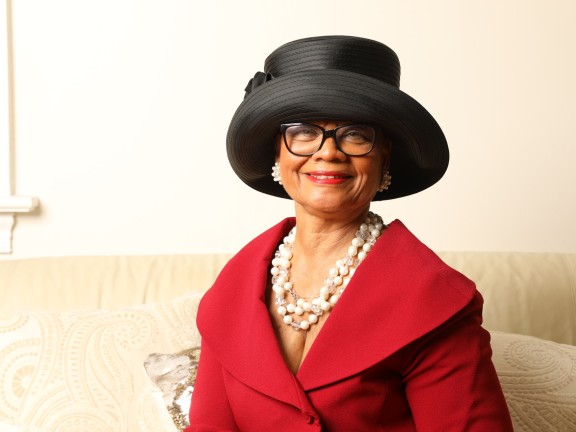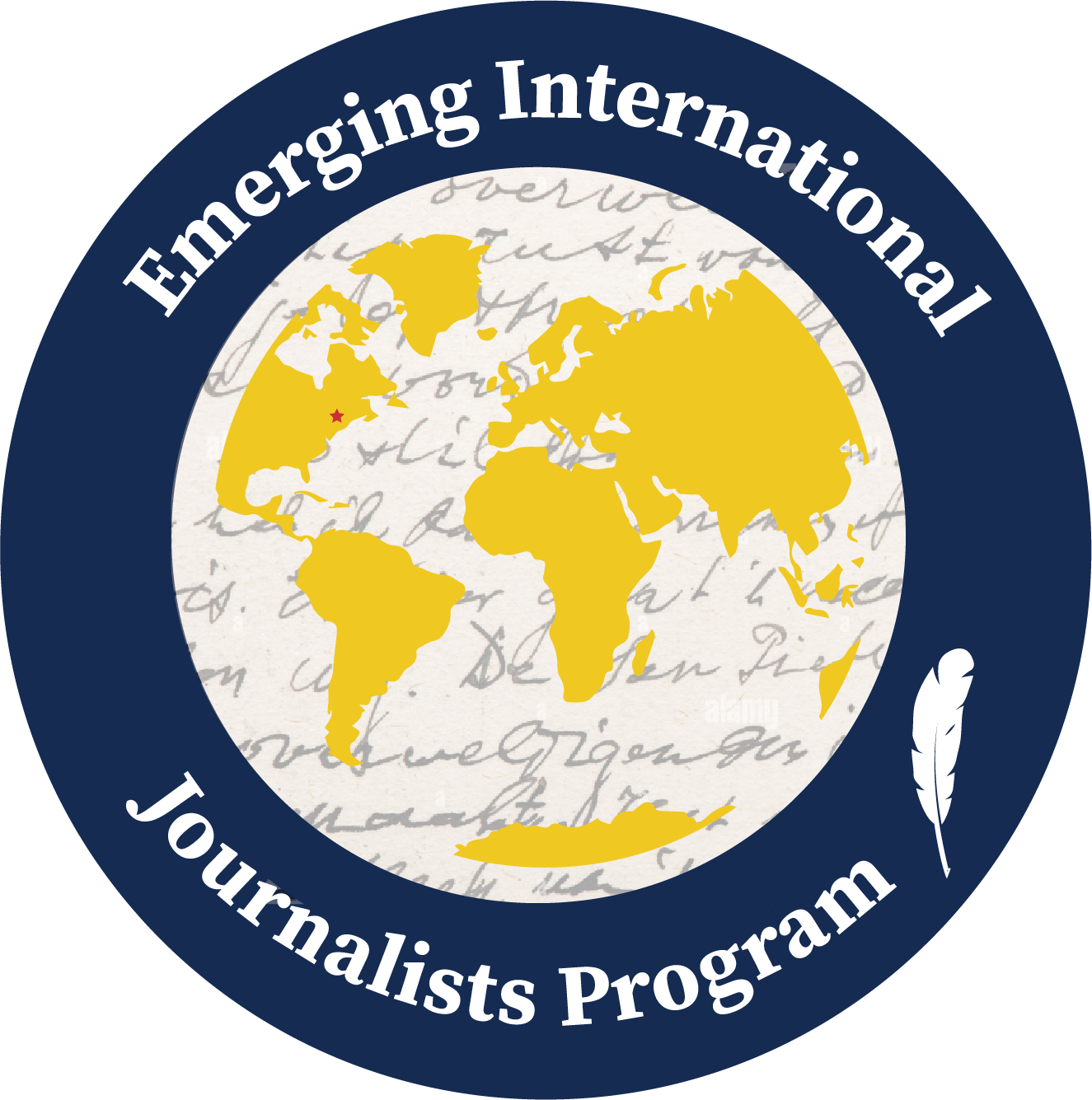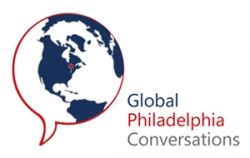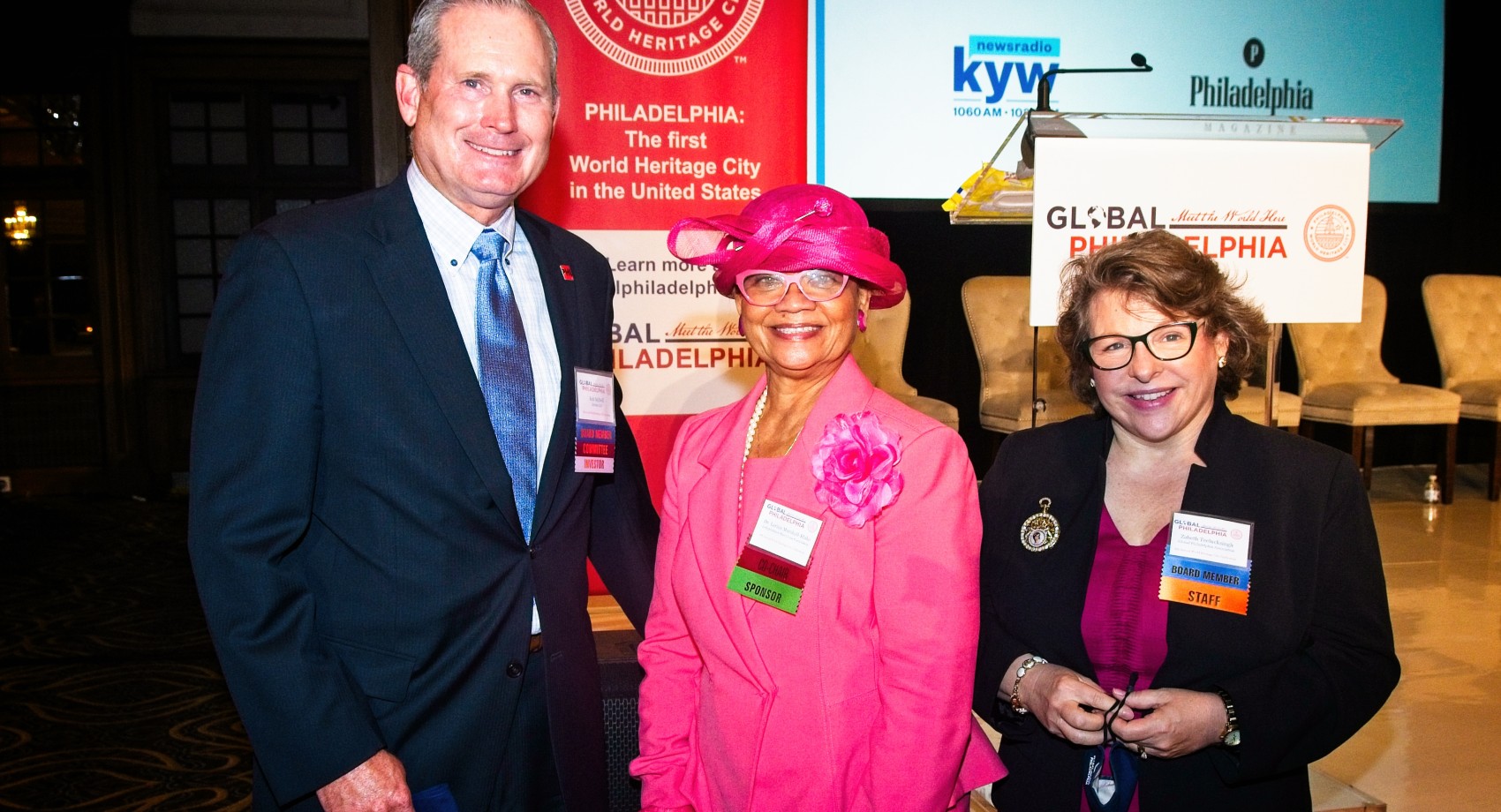A Global Conversation with Rev. Dr. Lorina Marshall-Blake

The Global Philadelphia Association is set to honor Rev. Dr. Lorina Marshall Blake — a true luminary and recipient of this year's Corporate Leadership award — at the 2023 Globy Awards. Hailing from the vibrant community of West Philly, Lorina's journey in healthcare and community affairs has been nothing short of extraordinary. Her story is one of resilience, passion, and an unwavering commitment to positive change, rooted in her deep belief that she can be a resource and catalyst for transformation.
Lorina's journey started as the assistant to the vice president and CEO of Philadelphia Gas Works in 1980. Over the years she has become a trailblazer in her community. As president of the Independence Blue Cross Foundation since 2011, Lorina plays a pivotal role in improving the health and well-being of countless individuals and families across southeastern Pennsylvania. Her leadership philosophy, embodied in the mantra "always serve," reflects her dedication to giving people a voice and addressing healthcare challenges with a focus on access and equity.
In our interview with Lorina, we explore the challenges she faced in the early 2000s, her transformative involvement in the Macy Undergraduate Leadership Fellows Program, and her insights on the skills young professionals should cultivate in our ever-changing world. Lorina also shares her deep connection with the Global Philadelphia Association, emphasizing the importance of thinking globally while staying rooted in the local community. As we celebrate Lorina’s achievements, we are reminded of the impact one individual can have on a city's global footprint and the enduring power of leadership dedicated to positive change.
As a Philly native, could you take us back to the beginning of your journey? What initially inspired you to pursue a career in health care and community affairs and how did you get started on this path?
I appreciate the opportunity to reflect on my journey, which is deeply rooted in the vibrant community of West Philly. It’s very important for me to be a role model for positive change and a resource for others. This is something that I've tried to honor throughout my career.
I grew up in West Philly, so I'm a hometown kid. I graduated from high school with a scholarship to college, but my family couldn't afford the books, so I didn't go right away. However, that didn’t dampen my dream to be a college graduate, and I was the first of my siblings to get a bachelor's degree. I’m proud to say that I now also have a master's degree, honorary degree, and serve on numerous national committees.
I started my career as the assistant to the vice president and CEO of Philadelphia Gas Works, where I worked for more than 14 years. I came to Independence Blue Cross in the early 1990s as the vice president of Government Relations, representing the company at the local, state and federal levels.
One of the highlights and privileges of my career has been serving as the president of the Independence Blue Cross Foundation. The Foundation has allowed me to bring about change by giving people a voice.
Can you share more about your role with Independence Blue Cross?
First, I don't take my job lightly or for granted! Our Foundation is dedicated to improving the health and the wellbeing of the communities we serve, and we do that through partnerships and relationships. We seek opportunities that address healthcare challenges in southeastern PA with a laser focus on access and equity. For example, through our Blue Safety Net program, we work to help ensure that people in underserved areas have access to high quality health care through community clinics that provide everything from primary care to mental health services.
We're also proud to support and help grow the future healthcare workforce. We grant scholarships and professional development opportunities that help advance diversity in nursing all the way from undergraduate up through doctoral studies. Given the ongoing nursing shortage, these programs offer an opportunity to make sure the workforce continues to meet the needs of our community.
What were some challenges you faced when you were getting started in community affairs?
The challenges I faced still resonate today, underscoring the persistent need for positive change. One of the enduring challenges is to make sure every individual has a voice, and that people know that they matter. There's a culture at Independence that I believe demonstrates how much we care about the communities and the people we serve. This desire to give back starts at the very top of the organization and resonates throughout the entire company.
I've always been very passionate about being a servant leader and the best way to do that is by helping others in underserved communities. I do that every day, whether it's here at IBX, in my community where I live, or in the church where I worship.
When I first became president of the Foundation, I visited all 65 of the community health centers we support. I wanted to convey that the Independence Foundation is a trusted messenger with trusted messages.
When I think about my own leadership philosophy and how I tackle the challenges Philadelphia faces, I'm blessed to have a broad set of experiences, a talent network, and a great team. I try to live by this quote: “Leadership is about believing 100 percent in yourself but believing 200 percent in the people that you're asking to follow you.”
Could you tell us more about your involvement in the Macy Undergraduate Leadership Fellows Program and the impact it has had on students' development?
My involvement in the Macy Program has been transformative. This program is not just about mentorship; it's about leaving a legacy. The program offers more than theoretical knowledge, it provides students real-world experiences, earning credits while honing their leadership skills. Through our partnership with the Macy program, students have access to paid internships, where they can spend part of the summer at community health centers, for example. That kind of hands-on learning is imperative to helping young people learn and grow.
Global Philadelphia has formed a network of young professionals that aim to think globally and take their talents to new heights in their careers. In a world that is rapidly changing from technological advances and increasing interconnectivity, whether it be in healthcare or other professional domains, what are some important skills students should work on developing as they transition to become young professionals?
The dynamic world demands young professionals embrace technological advancements while preserving genuine connections. Technology will continue to advance, so you're either going to go with it or you're not. While the way we communicate and relate to others may change, I believe that the need for connection remains the same.
Beyond tech proficiency, the ability to communicate and foster a connection with the person in front of you is indispensable. Developing cultural competence, especially in healthcare, is vital. In all professions, we have to continue to develop and advance our understanding even in diverse communities, because not everyone communicates in the same way. Inclusivity is key and understanding that everyone's story is significant. Young professionals must prioritize a holistic skill set that combines technological proficiency with the ability to be interpersonal.
Why have you chosen to get involved with the Global Philadelphia Association over the years? Can you discuss what thinking "global" means to you?
My involvement with the Global Philadelphia Association has been deeply rooted in my identity as a Philadelphian. I am passionate about the organization's commitment to celebrating Philadelphia's rich history. The approach of investing in the local community to enhance the region's global profile resonates with me. Despite its global perspective, the Association firmly plants its boots on the ground, recognizing the importance of staying connected to the local community. The slogan "You meet the world here" encapsulates the organization's ethos, emphasizing the integration of global perspectives within the local context. This philosophy creates a place where the world wants to be, benefiting both the region and its residents.
For me, thinking "global" extends beyond geographical boundaries. It is about embracing diversity and different perspectives. The Association's dedication to exposure to diversity and fostering conversations that bring people together is a testament to this belief. By facilitating membership, networking, and major events, the organization actively contributes to dynamic ideas and thoughts. This exposure to varied perspectives enriches us all, making us collectively stronger.
Serving on over 25 non-profit boards and committees is an impressive commitment. Could you tell us about one or two organizations or causes that are particularly close to your heart, and why they hold special significance for you?
My commitment extends to causes deeply rooted in my values. I’ve always tried to make sure that young people have the tools that they need, because they'll become the leaders of tomorrow, or even today.
Serving on boards of educational institutions like Albright and Harrisburg University and the Community College of Philadelphia aligns with my dedication to advancing higher education and making sure scholarships go to young people that are in need. I think the privilege for me is to be able to work toward the advancement of higher education and to enhance opportunities for those pursuing healthcare careers.
Involvement in organizations like Alpha Kappa Alpha Sorority and the Forum for Executive Women resonates with my advocacy for empowering women and girls. I served as the president of Alpha Kappa Alpha Sorority Inc, the first intercollegiate historically African American sorority, where I had the opportunity to be the president for more than 600 women. I thought to myself that if I could do that, then I could do anything!
I am also involved with the Forum for Executive Women and the Maternity Care Coalition, an organization that works to improve black women’s health. These causes provide avenues for uplifting and empowering underrepresented groups, aligning with my commitment to inclusivity and positive change.
You have a really wonderful style. Why do you feel like it's important to stay true to yourself and your personality in a corporate environment, especially as a woman?
I would say this: be your authentic self because it is too hard trying to be anybody else. It doesn't mean aiming for perfection; rather, it's about striving to be the best version of oneself. In a world that demands authenticity, staying true to oneself fosters a positive atmosphere. Embracing a positive attitude, guided by my mantra "always serve," becomes contagious, influencing both personal and corporate environments.
Grounded in my faith and as an associate minister at my church, I draw strength from my spiritual beliefs, guiding me through challenging moments. I embrace the reality that not every day is perfect, but each day brings its own set of challenges that can be overcome.
My personal style revolves around warmth and empathy, embodying the principle of showing care through actions rather than mere words. As I recently shared with nursing students at Emory University, the essence of community health nursing lies in demonstrating care tangibly. In a world filled with challenges and uncertainties, I find it essential for women to unite, support, and celebrate each other, irrespective of differences. The journey of being a woman, whether of color or white, is acknowledged as a collective challenge that can be navigated with strength, resilience, and mutual support.
You've been a trailblazer in your career, breaking barriers and paving the way for others. What motivates you to continue pushing boundaries, and what legacy do you hope to leave for future generations?
The motivation to push boundaries stems from a commitment to positive change and a belief in the potential of every individual. One of my favorite SHE-roes is Michelle Obama, who said that we should all have three types of friends: those you aspire to be, those who check you, and those you pull behind you. I've been fortunate to have mentors who paved the way for me, and to pay that forward by helping others behind me.
Breaking barriers is not just about personal achievement but about creating pathways for those who come after. My motivation lies in the knowledge that every barrier broken opens doors for others. The legacy I aspire to leave is one of empowerment, inclusivity, and resilience. I want future generations to look back and see that, regardless of challenges, positive change is achievable. It's about leaving a legacy that fosters a culture of "always serve," where each individual recognizes their ability to make a lasting and positive impact.
Before we conclude, is there any message or advice you'd like to convey to our audience?
I appreciate the opportunity to share my journey and insights. I would like to convey a simple yet powerful message: you matter. Your unique skills, experiences, and perspectives are invaluable. Embrace them, share them, and use them to make a positive impact. In a world that sometimes feels overwhelming, remember that positive change starts with individuals, each playing a part in creating a better future. Be resilient, be kind, and always strive to make a difference. Together, we can build a more inclusive and equitable world for all.


